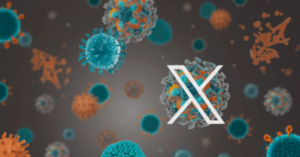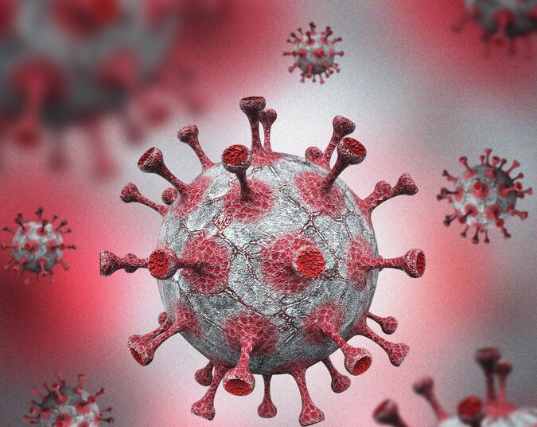Introduction: Unveiling the Menace of MERS-CoV
In recent years, the emergence of novel viruses has posed significant challenges to global health security. Among these threats stands the Middle East Respiratory Syndrome Coronavirus (MERS-CoV), a pathogen that has garnered attention for its potential to cause severe respiratory illness in humans. Understanding the origins, transmission, and impact of MERS-CoV is crucial for effective disease control and prevention efforts.
Table of Contents
What is MERS-CoV?
MERS-CoV, short for Middle East Respiratory Syndrome Coronavirus, is a strain of covid that was first identified in humans in 2012. This virus belongs to the same family as the severe acute respiratory syndrome coronavirus (SARS-CoV) and the more recent coronavirus responsible for the COVID-19 pandemic (SARS-CoV-2).
Origins of MERS-CoV
The origins of MERS-CoV can be traced back to infected dromedary camels. It is believed that camels serve as intermediate hosts for the virus, transmitting it to humans through direct or indirect contact.
Spread and Transmission
The transmission of MERS-CoV occurs primarily through close contact with infected camels or through respiratory droplets from coughs or sneezes of infected individuals. Human-to-human transmission is also possible, particularly in healthcare settings where proper infection control measures may be lacking.
Global Impact
Since its discovery, MERS-CoV has spread to multiple countries across the Middle East, Africa, and South Asia. In total, 27 countries have reported cases of MERS-CoV infection, with varying degrees of severity and transmission rates.
Clinical Manifestations and Symptoms
MERS-CoV infection can lead to a range of respiratory symptoms, ranging from mild illness to severe pneumonia and respiratory failure. Common symptoms include fever, cough, and shortness of breath, with severe cases often requiring hospitalization and intensive care.
Complications and Mortality
While most cases of MERS-CoV infection result in mild symptoms, severe cases can lead to complications such as acute respiratory distress syndrome (ARDS) and organ failure. The mortality rate associated with MERS-CoV is approximately 35%, making it a significant public health concern.
Prevention and Control Measures
Preventing the spread of MERS-CoV relies on implementing effective infection control measures, particularly in healthcare settings where the risk of transmission is highest. This includes proper hand hygiene, respiratory etiquette, and the use of personal protective equipment.
Vaccination and Treatment
Currently, there is no specific vaccine or antiviral treatment available for MERS-CoV. However, research efforts are ongoing to develop vaccines and therapeutic agents to combat this emerging infectious disease.
Conclusion: Navigating the Challenges of MERS-CoV
In conclusion, Middle East Respiratory Syndrome Coronavirus (MERS-CoV) represents a significant threat to global health security due to its potential for widespread transmission and severe clinical outcomes. Understanding the origins, transmission dynamics, and clinical manifestations of MERS-CoV is essential for implementing effective prevention and control strategies.
Frequently Asked Questions
MERS-CoV is primarily transmitted to humans through direct or indirect contact with infected dromedary camels. Human-to-human transmission is also possible, particularly in healthcare settings.
Common symptoms of MERS-CoV infection include fever, cough, and shortness of breath. In severe cases, patients may develop pneumonia and respiratory failure.
Currently, there is no specific vaccine approved for MERS-CoV. However, research efforts are underway to develop preventive measures against this virus.
Practicing good hand hygiene, avoiding contact with sick camels, and adhering to proper respiratory etiquette are essential for preventing MERS-CoV infection.
Healthcare facilities should implement strict infection control measures, including isolating suspected cases, using personal protective equipment, and promoting environmental cleaning and disinfection protocols.
There is currently no evidence to suggest that MERS-CoV can be transmitted through food or water. The primary mode of transmission is through close contact with infected camels or respiratory droplets from infected individuals.
Travelers to regions where MERS-CoV is endemic should avoid close contact with camels, practice good hand hygiene, and avoid consuming raw camel products. Additionally, travelers should seek medical attention if they develop symptoms consistent with MERS-CoV infection.
Travel restrictions may be implemented by health authorities in response to MERS-CoV outbreaks in certain regions. Travelers should stay informed about travel advisories and follow any recommendations provided by health authorities.
While there is a potential risk of MERS-CoV transmission through consumption of raw camel products, properly cooked camel meat and pasteurized camel milk are considered safe for consumption. It is essential to ensure proper food hygiene practices are followed when handling and preparing camel products.
Vulnerable populations, such as the elderly and individuals with underlying health conditions, should take extra precautions to avoid exposure to MERS-CoV. This includes minimizing contact with sick individuals and practicing strict adherence to infection control measures.

10 Proven Benefits of Bananas for Health and Well-being
Bananas are known for their natural sweetness, ease of peeling and rich nutrition. This makes them one of the most commonly consumed fruits in the world. Though bananas originated in

Disease X: The Next Pandemic?
Emerging infectious diseases pose one of the greatest threats to human health and global stability. One of them, “Disease X” has intrigued scientists and WHO, as it represents the potential

The Remarkable Benefits of Eating Acorn Squash in Winter
Acorn squash has all the qualities that make it special. Winter calls for warmth, comfort, and nutrition, and acorn squash provides all of these. This vegetable is not just delicious

Omega-3 Fatty Acids
Omega-3 fatty acids play a very important role in the nutrients needed to maintain overall health. As people are getting to know about it, its popularity is increasing day-by-day. These
